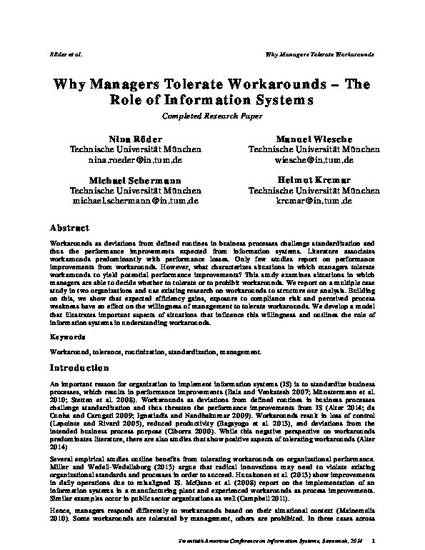
Workarounds as deviations from defined routines in business processes challenge standardization and thus the performance improvements expected from information systems. Literature associates workarounds predominantly with performance losses. Only few studies report on performance improvements from workarounds. However, what characterizes situations in which managers tolerate workarounds to yield potential performance improvements? This study examines situations in which managers are able to decide whether to tolerate or to prohibit workarounds. We report on a multiple case study in two organizations and use existing research on workarounds to structure our analysis. Building on this, we show that expected efficiency gains, exposure to compliance risk and perceived process weakness have an effect on the willingness of management to tolerate workarounds. We develop a model that illustrates important aspects of situations that influence this willingness and outlines the role of information systems in understanding workarounds.
